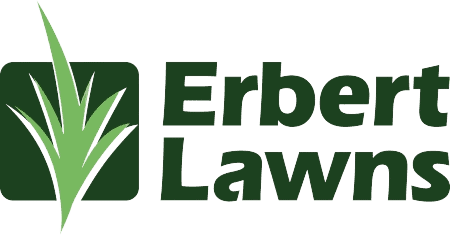
Denver’s unique climate presents its own set of challenges for lawn care, but with a bit of knowledge and effort, you can maintain a lush, green yard all year round. Erbert Lawns has compiled these essential DIY lawn care tips specifically for Denver residents, so you can keep your lawn healthy without the need for professional help. From understanding soil types to mastering watering techniques, we’ve got you covered.
Maintaining a vibrant lawn in Denver isn’t just about aesthetics; it’s about nurturing the soil, adapting to the climate, and keeping your lawn strong through every season. Here’s a guide to help you master your lawn care routine with a DIY approach tailored to Denver’s environment.
Key Takeaways
- Know Your Soil: Denver’s alkaline, clay-heavy soil needs proper care and amendments.
- Water Wisely: Deep, infrequent watering is key to a healthy lawn.
- Mow High: Set your mower to 2.5–3 inches to reduce stress on your lawn.
- Fertilize Smart: Less is more; over-fertilizing can damage your lawn.
- Aerate Annually: Regular aeration keeps your soil healthy and receptive.
Understanding Your Soil
One of the most crucial factors in Denver lawn care is understanding your soil. Denver’s soil tends to be clay-heavy, which can retain water longer than desired. You can easily test your soil by conducting a basic pH test. Soils in Denver typically fall on the alkaline side, so consider adding compost or sulfur to balance the pH if necessary.
Smart Watering Techniques
Denver’s dry climate and high elevation make proper watering critical. Watering in the early morning ensures your lawn absorbs moisture before the heat kicks in. Watering in the evening might encourage the growth of fungi, so avoid doing so.
- Aim to water your lawn 1-1.5 inches per week for optimal moisture absorption. This deep watering strategy encourages your grass to develop strong, deep roots, making it more resilient to heat and drought. Shallow watering, on the other hand, leads to weak, surface-level roots that are more susceptible to stress.
- Use a rain gauge to accurately monitor natural rainfall and adjust your watering schedule accordingly. Denver’s unpredictable weather can bring varying amounts of rain, and a rain gauge helps you determine how much supplemental water your lawn still needs. By tracking rainfall, you can avoid overwatering, which can lead to root rot and other water-related issues.
- To minimize evaporation and extend the soil’s ability to hold moisture, water your lawn before 10 AM. Early morning watering ensures the water penetrates the soil before the sun’s heat increases evaporation rates. Watering later in the day can result in rapid evaporation, while evening watering risks creating moist conditions that promote fungus growth and lawn diseases.
Mowing: Height Matters
Keeping your lawn mowed correctly is essential. Mow at the right height between 2.5 to 3 inches. This helps shade the soil, keeping it cooler and less likely to dry out. To encourage a healthier lawn, avoid trimming more than one-third of the grass blade during each mowing session. Cutting too short can stress your lawn, especially in Denver’s dry summer months.
- Strive to provide your lawn with 1 to 1.5 inches of deep watering each week to support strong root growth. This amount ensures that moisture reaches deep into the soil, encouraging strong root growth. Be mindful of how much rain your lawn receives naturally and adjust your watering schedule accordingly to avoid overwatering.
- Track natural rainfall with a rain gauge to prevent overwatering. Denver’s weather can be unpredictable, with some weeks bringing heavy rain and others being dry. A rain gauge helps you determine exactly how much water your lawn is getting from rainfall so that you can adjust your irrigation efforts accordingly.
Fertilize, But Don’t Overdo It
Fertilization is vital for a healthy lawn, but in Denver, too much fertilizer can cause more harm than good. Use a slow-release fertilizer and opt for one that’s low in nitrogen to prevent burning. Be sure to read the fertilizer label carefully, as over-fertilization can contribute to nutrient runoff.
- Choose a slow-release, low-nitrogen fertilizer to provide consistent nutrients without the risk of burning your lawn. Slow-release formulas allow your grass to absorb nutrients gradually, reducing the chance of overload and promoting steady, healthy growth. Lower nitrogen levels also prevent rapid, excessive top growth that can weaken the grass in Denver’s dry climate.
- Apply fertilizer during the spring and fall seasons when the grass is actively growing, and the temperatures are more moderate, allowing for optimal nutrient absorption. The nutrients from fertilizer are better absorbed and utilized by your grass in cooler weather, providing it the boost it needs without overstressing it. Always follow the recommended application rate on the packaging to avoid nutrient runoff, which can damage nearby plants and waterways.
Aeration: Your Lawn’s Best Friend
Denver’s soil compacts easily, especially during the hot, dry summer. Aeration is one of the best DIY treatments to alleviate compaction and allow water, air, and nutrients to penetrate the soil. For optimal results, aerate your lawn in the spring or fall when the grass is in its active growth phase.
- Aeration relieves soil compaction, helping roots access essential nutrients and moisture. By creating small holes in your lawn, aeration breaks up compacted soil, which allows oxygen, water, and vital nutrients to reach the grass roots more easily. This process enhances root growth and overall lawn health, especially in Denver’s dense clay soils, which tend to compact over time.
- Perform aeration in the spring or fall to maximize benefits when your lawn is most active. Aerating during these cooler seasons promotes faster recovery and growth, as the grass is not stressed by the heat. Regular aeration also ensures long-term benefits by improving drainage and preventing thatch buildup, which can suffocate grass and limit access to essential resources.
Weed Control: Stay Ahead
Weeds are relentless in Denver’s climate. Stay ahead by applying pre-emergent herbicides in the early spring. Hand-pull any visible weeds to prevent them from spreading. Mulching can also help suppress weeds by keeping the soil shaded and cool.
- Use pre-emergent herbicides in early spring to stop weed seeds from germinating and taking root. This proactive approach helps you tackle weeds before they become a problem. By creating a protective barrier in the soil, pre-emergent herbicides stop weeds from sprouting, giving your lawn a head start for the growing season. Timing is critical apply the herbicide just as the soil begins to warm up in spring for maximum effectiveness.
- Use mulch to suppress weeds by blocking sunlight and keeping the soil cooler. A layer of organic mulch around garden beds and edges not only enhances the look of your lawn but also prevents weeds from establishing a foothold. Mulching not only blocks light needed for weed growth but also helps retain soil moisture, making it a dual-purpose solution that can improve the health of your lawn while minimizing the need for frequent weeding.
Conclusion
Are you ready to step up the maintenance of your lawn? Contact us today for professional services that will ensure your lawn thrives year-round. Whether you need expert advice, regular maintenance, or specialized treatments, we’re here to help, and let us take care of your lawn so you can enjoy it stress-free.
FAQs
- What is the recommended frequency for watering my lawn in Denver?
Provide your lawn with deep, infrequent watering, aiming for around 1 to 1.5 inches each week. Water early in the morning to prevent evaporation and reduce the risk of fungus.
- Which grass varieties are most suitable for lawns in Denver?
Kentucky bluegrass and tall fescue are great options for Denver’s climate due to their drought tolerance and ability to thrive in cooler temperatures.
- Should I aerate my lawn every year?
Yes, aerating your lawn annually reduces soil compaction and improves the delivery of water, air, and nutrients to the roots.
- How frequently should you fertilize your lawn, and what are the optimal times to do so in Denver?
You should fertilize your lawn 4-5 times a year, with the best times being in the spring and fall. The cooler temperatures during these seasons allow the grass to absorb nutrients more effectively, promoting healthier growth.
- What steps can I take to effectively prevent weeds from growing on my lawn?
Apply a pre-emergent herbicide in early spring and hand-pull any visible weeds. Using mulch can be an effective way to suppress weed growth.
- Is overwatering a problem in Denver?
Yes, overwatering can lead to root rot and fungal growth, especially in Denver’s clay-heavy soil. Deep, infrequent watering is essential for maintaining a healthy lawn.











